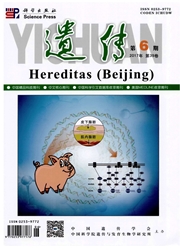

 中文摘要:
中文摘要:
心血管病已成为威胁我国人群健康的首要疾病,而胆固醇代谢紊乱是心血管病发生发展的重要危险因素之一.近年来高通量技术的推广和群体基因组学的发展极大地促进了复杂性状(或疾病)易感基因或突变的发现,为深入解析胆固醇代谢紊乱的遗传学病因提供了机会.文章整合传统遗传分析和近期GWAS筛查的结果,对胆固醇代谢紊乱的分子遗传研究进展进行了综述,结合通路富集分析揭示胆固醇代谢紊乱的功能背景,以期更好地理解胆固醇代谢紊乱致病的分子机制,为其防治提供线索.
 英文摘要:
英文摘要:
Cardiovascular disease (CVD) has become an increased risk to human health, and the abnormal cholesterol me- tabolism will increase the risk of developing CVD. Along with the development of high-throughput sequencing technology and population genomics, the scanning for genes or mutations related to complex traits (or diseases) has been greatly promoted. Also, it becomes possible to explore the genetic mechanism of cholesterol metabolism. In this review, we summarize the progress of molecular genetic studies of cholesterol metabolism, based on the results of traditional genetic method and GWAS screening. Finally, the functional background of abnormal cholesterol metabolism was explored by pathway enrichment analy- sis. All these analyses will contribute to a better understanding of cholesterol molecular mechanism, and will also pro- vide clues for prevention and treatment of cholesterol metabolism disorders.
 同期刊论文项目
同期刊论文项目
 同项目期刊论文
同项目期刊论文
 期刊信息
期刊信息
